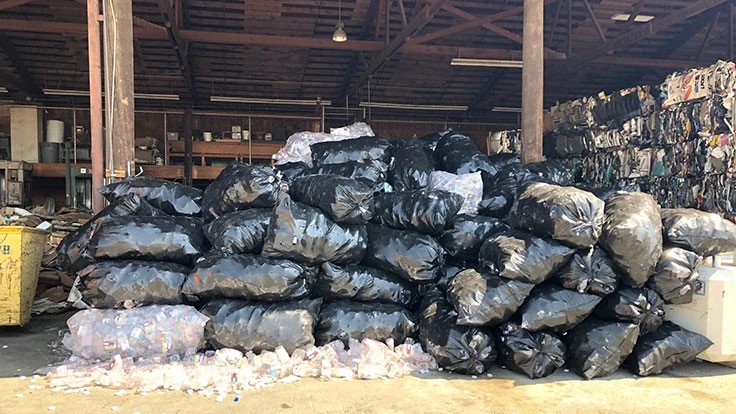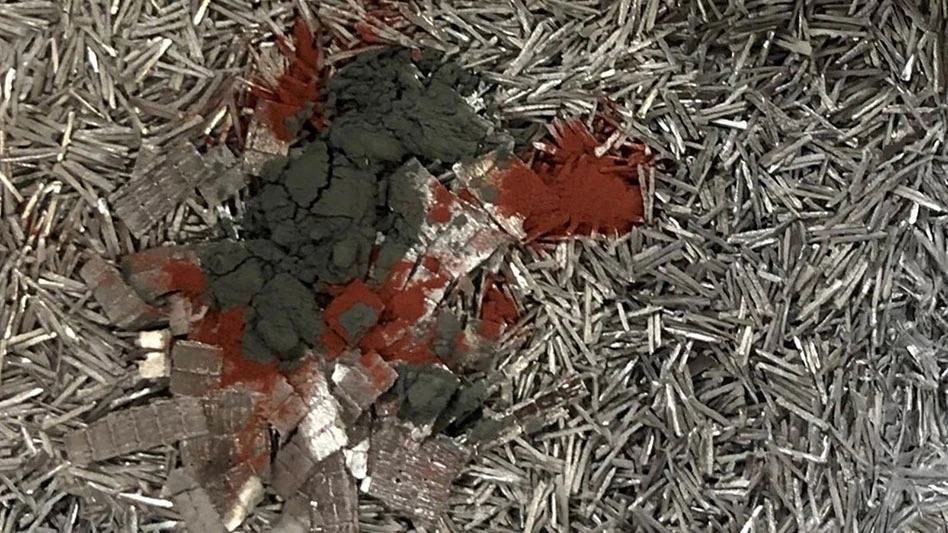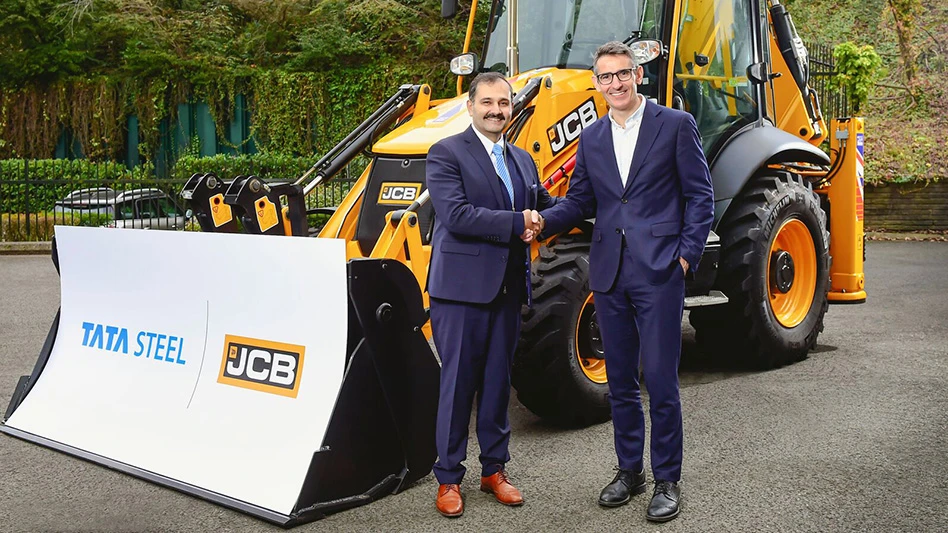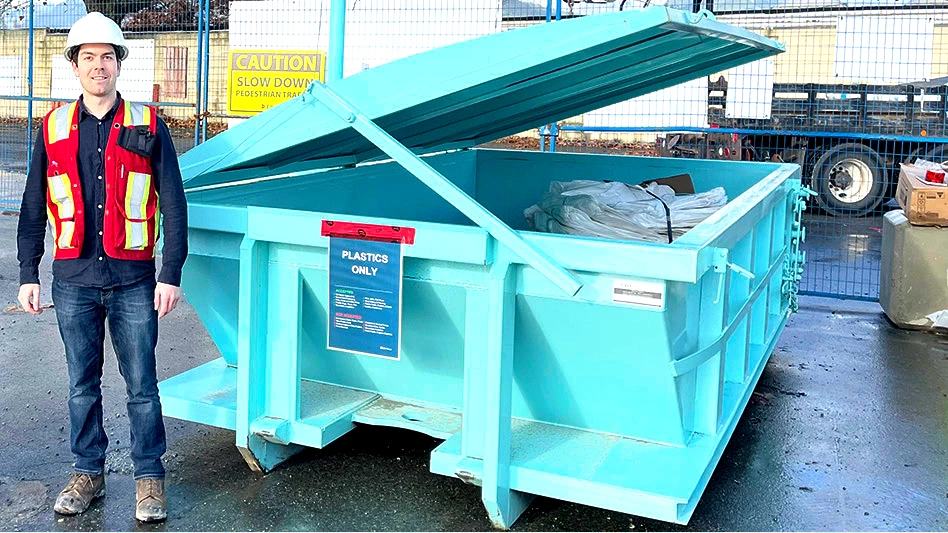
Pictured above: The California Department of Justice seized evidence after a June 6 recycling fraud border arrest in Barstow, California. Photo courtesy of the California Department of Justice.
California’s Department of Resources Recycling and Recovery (CalRecycle) announced that agents arrested eight suspects accused of attempting to defraud California’s Beverage Container Recycling program by smuggling out-of-state empty beverage containers for illegal CRV (California Redemption Value) redemptions. The arrests were made between June and August.
Lance Klug, information officer at CalRecycle, says CalRecycle works in partnership with the California Department of Justice, the California Department of Food and Agriculture and other state and local offices to prevent and limit fraud. This summer, the California Department of Justice’s fraud team agents recovered more than 56,000 pounds of material worth an estimated $82,853 in potential CRV in eight different arrests.
According to CalRecycle, the following recycling fraud arrests were made in June to August 2018:
• Aug. 15: The California Department of Justice’s fraud team agents arrested Mary Simpson, a recycling center owner based in Yuma, Arizona, who is suspected of smuggling empty beverage containers into California. Agents detained Simpson at the Winterhaven, California-based California Department of Food and Agriculture border protection station, where Simpson admitted to transporting the containers into the state in an effort to collect fraudulent CRV. With this arrest, the agents seized 907 pounds of aluminum empty beverage containers with an estimated CRV value of $1,451. Based on Simpson’s statements and evidence seized from her vehicle, Simpson may have imported about 468,000 pounds of aluminum worth an estimated $748,000 in CRV into California over the past three years.
• July 16-17: CalRecycle, the California Department of Food and Agriculture and the California Department of Justice conducted operations at the California Department of Food and Agriculture’s border checkpoint in Needles, California. Over the two-day operation, CalRecycle says five suspects were found to be transporting out-of-state empty beverage containers from Nevada to California with the intent to defraud the state’s CRV fund. Agents arrested Jose Ramirez of Duarte, California; Juan Higuera of Buckeye, Arizona; Romeo Turcios of Los Angeles; Ricardo Flores of Pomona, California; Mario Tolentino of Las Vegas; and Rafael Escobar of Los Angeles on charges that included felony recycling fraud, attempted grand theft and conspiracy. Overall, agents seized 33,639 pounds of aluminum and 13,623 pounds of plastic empty beverage containers with an estimated CRV value of $71,260.
• June 6: Agents with the California Department of Justice’s recycling fraud team received information that a semi-truck filled with empty beverage containers from a Las Vegas construction yard was being transported into the state for fraudulent CRV redemptions. California Highway Patrol initiated a traffic stop in Barstow, California, and officers arrested Moises Morgan-Gomez of Las Vegas on charges of felony recycling fraud, attempted grand theft and conspiracy. Agents seized 1,480 pounds of aluminum and 6,260 pounds of plastic empty beverage containers with an estimated CRV value of $10,142.
In 2018, Klug says CalRecycle has reported about 26 arrests compared with 11 arrests made in 2017 and 18 arrests made in 2016.
“[The number of arrests] ranges,” he says. “But it’s hard to draw conclusions since each year is different. Some are large, some are small. Also, investigations are ongoing and can take a year or more to complete. Some of these smaller busts may lead to bigger [arrests] down the line.”
While CalRecycle cannot share any correlation or trends related to these 2018 arrests, Klug says it is continuing to partner with other state and local departments to deter fraud from occurring in the CRV program. He adds that part of the prevention is through offering precertification training to California-based recycling center owners to help them protect themselves against fraud.
“Every recycling center in California that gives CRV redemptions, the operators need to be trained,” he says. “[These] recycling centers are responsible for not accepting out-of-state material [for the program]. There’s a lot of giveaways to look for: out-of-state license plates or repeat large loads. Make note of any suspicious activity.”
CalRecycle offers resources for recycling center owners, which can be found online here.
Latest from Recycling Today
- AISI applauds waterways spending bill
- Lux Research questions hydrogen’s transportation role
- Sonoco selling thermoformed, flexible packaging business to Toppan for $1.8B
- ReMA offers Superfund informational reports
- Hyster-Yale commits to US production
- STG selects SolarPanelRecycling.com as exclusive recycling partner
- Toyota receives $4.5M to support a circular domestic supply chain for EV batteries
- Greyparrot reports 2024 recycling trends





